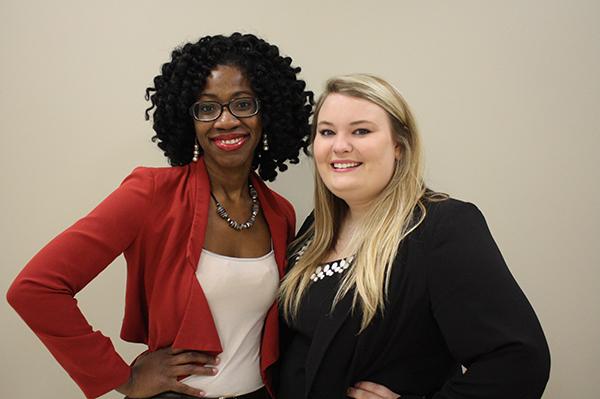Two students at The University of Alabama will graduate from the institute at its Winter Summit in Birmingham Feb. 20 and 21.
Students begin the program in the summer and spend the last full week of June on-site with program directors and other participants.
“We partner with colleges around the state, and we ask colleges to identify students on their campus,” said Ashley Gilbert, executive director of the program. “It’s pretty evident that each campus has a different set of rules and values. We ask the colleges themselves to identify students who aren’t currently in roles of leadership with the goal being students will gain the tools to run for leadership positions.”
Gilbert said this system brings a wide range of people and experiences together.
“The group is incredibly diverse,” Gilbert said. “Women learn about different leadership styles and what it looks like to be a leader.”
Sarah Kidwell, a senior majoring in family financial planning and counseling, and Lakeisha Skinner, a senior majoring in political science and history, were selected to participate in the program.
“I’ve gained connections from different schools throughout the state,” Kidwell said. “This has opened me to different perspectives about women in leadership and how women can affect the community. It’s greater than we know. Women aren’t very well represented in leadership.”
Skinner said she learned a lot about herself and her leadership style from being in the presence of so many other leaders.
“I feel like this is the first time I’ve been around a group of girls and bonded like sisters,” Skinner said. “Being around women who are all so different gave me a different perspective on what kind of leader I am, what kind of person I am, and what I can do to change the world.”
Participants create projects to fill needs in their communities. At the Winter Summit, they present those projects to their peers and program leaders.
Kidwell took her passion for financial literacy and outreach and created a program that aims to teach underrepresented community members about handling money.
“I believe we can give money to those in need, but if we don’t teach them how to use it, it’s an absolute waste,” she said.
Skinner is in the process of creating a scholarship program for unpaid interns from low-income families in the College of Arts and Sciences.
“It’s a struggle for unpaid interns,” she said. “They want to achieve and be able to do stuff, but they can’t because they don’t have the money and can’t put that burden on their families.”
Gilbert said she believes wholeheartedly in the program.
“What I see most, because of the type of students we approach – students who currently don’t hold positions of leadership – is a shift in their perception of themselves,” she said. “We try to show them the value that they have as potential leaders in our state.”









